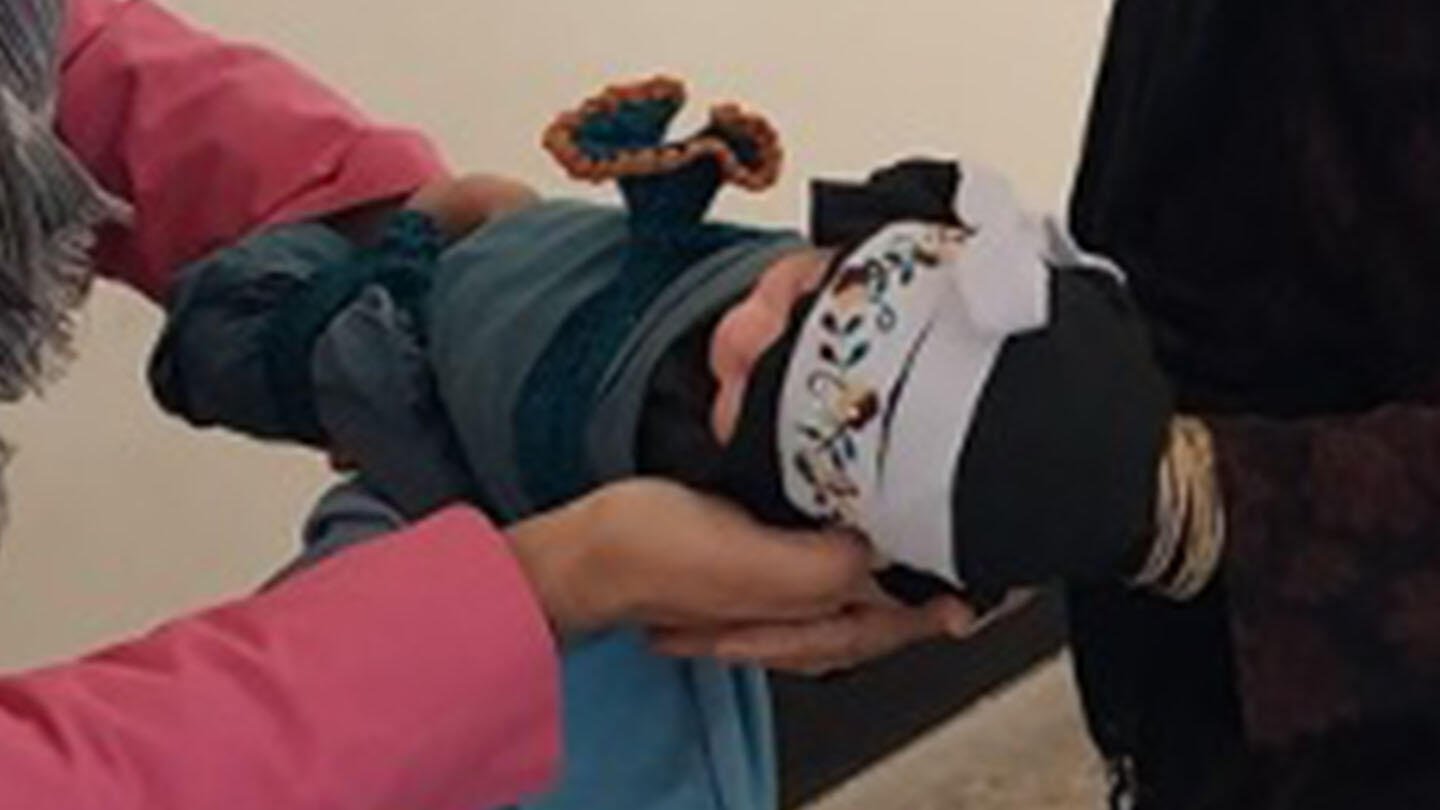At a young age of 14, Damsa* was committed to an arranged marriage. A year after her wedding, she had her first child – a girl.
As a young adolescent, she struggled to learn the responsibilities of caring for her child. Societal pressures to be good at being a mother and a wife made the experience more challenging. Worse, she had more pregnancies in the years that followed.
Damsa comes from a remote district in Helmand and has never given birth with the assistance of a professional midwife. Adding to her burden is the pressure to give her husband a male child. She has had five pregnancies, all of which were girls. Bearing consecutive pregnancies at a young age and without the care of a skilled birth attendant, Damsa had practically put her life at risk to have a son.
On her sixth pregnancy two years ago, Damsa finally had the chance to experience the care of a midwife. It was when UNFPA, in partnership with the Government of Japan, established Family Health Houses (FHHs) in Helmand province.
Damsa visited the FHH as her delivery date approached, and she received proper antenatal care. She delivered another baby girl. Taking cognizance of the pressure on Damsa to have a son and the potential impact of having another pregnancy on the mother’s health and well-being, the midwife advised her about birth spacing and its benefits to prevent maternal and newborn deaths and illnesses.
But Damsa felt it was not a decision for her to make. “I have six daughters and no sons; in my community, sons are preferred,” she explained. “My husband, influenced by his siblings, insisted that we have to bear a son.” Lacking the agency to negotiate the situation with her husband, Damsa became pregnant again a year later.
“I went back to the FHH for antenatal care with midwife Fawzia,” Damsa said. She hoped to finally have a son and get a reprieve from further pregnancies.
Damsa gave birth a few months ago. It was another girl. Worries about her husband’s reaction overshadowed the joy of giving birth.
Following the delivery of Damsa’s baby, Fawzia grew more concerned about the mother’s health.
“Damsa was understandably worried,” Fawzia stated. “I engaged them in a discussion about gender preference from both reproductive health and religious perspectives, emphasizing the importance of prioritizing Damsa’s health and well-being over cultural norms.”
The midwife explained how frequent pregnancies could be risky for a woman and underscored the benefits of child spacing to prevent the risks. The discussion helped enlighten Damsa’s mother-in-law, who promised to talk to her son and encourage the couple to think about whether to pursue having a son.
“It is crucial that we educate people on issues related to gender preference. I hope this will help women navigate the stigma and challenges they face, such as in Dasta’s case,” Fawzia concluded.
*Name changed to protect privacy.


